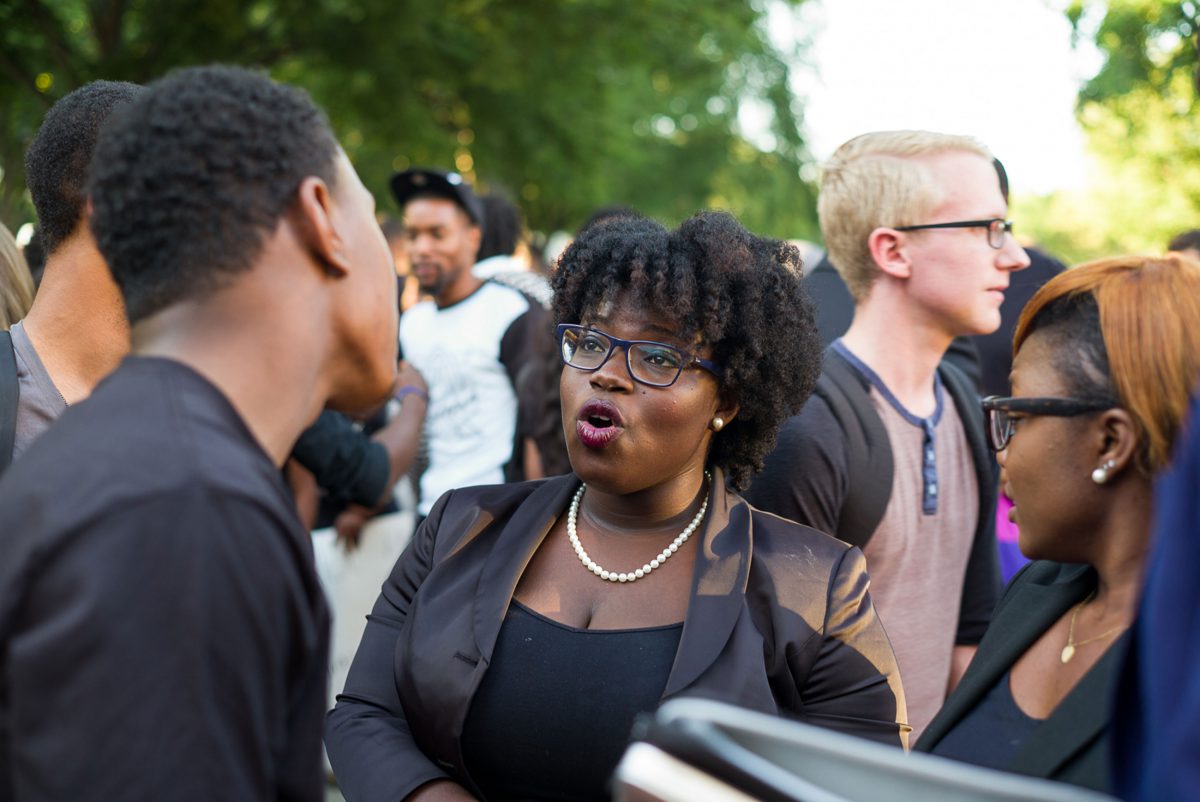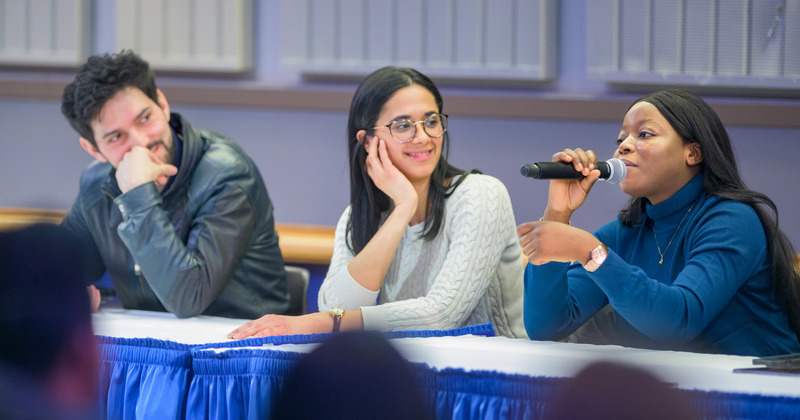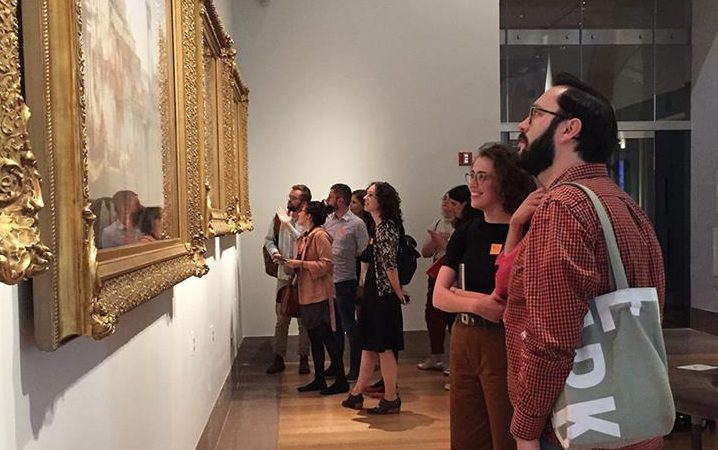
Graduate Programs
Advancing in Art History
Graduate Programs
We offer programs leading to Master of Arts and Doctor of Philosophy degrees. Both provide broad overviews of art history as well as concentrations in various specialties supported by our distinguished faculty.
In addition to coursework, graduate students take advantage of the Department’s robust network of resources on campus, including:
- The University Museums, with its collection of about 6,000 objects available for teaching and research and curating. The University Museums' holdings include the Paul R. Jones Collection of African American Art, the Frederick and Lucy S. Herman Native American Art Collection, and the Mabel and Harley McKeague Alaskan Inuit Collection, Gertrude Käsebier photographs, Abraham Walkowitz paintings and drawings, and Italian Futurism, among others.
- The Mark Samuels Lasner Collection, rich in Victorian materials, including many illustrated books.
- The College of Arts & Sciences Center for Material Culture Studies, a dynamic collaboration of individuals, programs and departments engaged in the documentation, interpretation and preservation of objects and images.
- The Center for Historic Architecture and Design (CHAD), a multidisciplinary research and public service group exploring the evolution of historic architecture, engineering and the built environment.
- Courses and events sponsored by affiliated departments such as History, Geography, the College of Engineering, the Museum Studies Program, and the Winterthur Program in American Material Culture.
- The Department has a cooperative arrangement with Bryn Mawr College and the University of Pennsylvania that allows graduate students to take courses at both institutions.
Nearby resources include the Winterthur and Hagley museums and libraries, the Historical Society of Delaware, the Delaware Division of Historical and Cultural Affairs and Delaware Art Museum, with its pre-eminent collection of pre-Raphaelite art and the art of illustration. Periodically, art history graduate seminars visit and work with regional institutions such as the Philadelphia Museum of Art and the Pennsylvania Academy of the Fine Arts, both in Philadelphia; the Metropolitan Museum of Art, the Whitney Museum of American Art and the Museum of Modern Art, all in New York; the Walters Art Museum, in Baltimore; , the Hirshhorn Museum, the Smithsonian and the National Gallery of Art, all in Washington, DC.
Look through our graduate programs
How to apply?
Application forms and information on degree requirements may be requested from the Graduate College.
Financial Assistance Information may be obtained from the Graduate Catalog.
Information may also be requested via email from Polly Marchesani at: pmarches@udel.edu

African American Public Humanities Initiative
The Department of Art History participates in the University's African American Public Humanities Initiative, an interdisciplinary program integrating the disciplines of History, English, Art History, and Africana Studies to train students for a broad range of careers in and beyond the academy.
Benefits of the AAPHI include fully-funded 5-year tuition and stipend and additional funding for summer research/internships and professional development.
Prospective graduate students interested in being considered for the African American Public Humanities Initiative scholarship should indicate their interest by checking the AAPHI interest box in their application and indicating their interest in their personal statement.
The University of Delaware holistically supports its graduate students, beginning with their health and wellbeing. Benefits include a subsidized health plan and physical and behavioral health services. UD fosters a culture of academic excellence, with committed faculty and staff and access to state-of-the-art research facilities and technology. UD prioritizes professional development with job training, internships and industry partnerships. Graduates further enhance their professional growth and visibility with opportunities to work on interdisciplinary research teams, present their work at conferences and publish in academic journals. Visit the links below to learn how UD is supporting society’s future leaders, scholars, and innovators.




